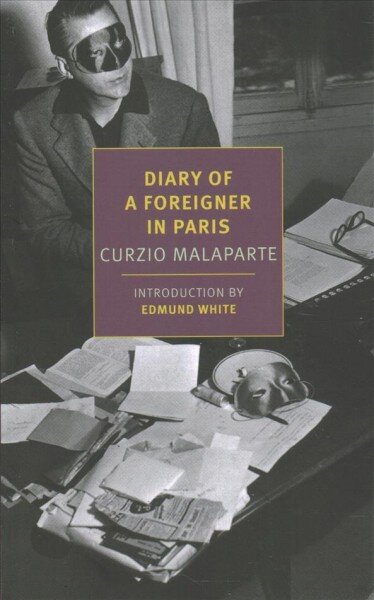"Every "diary" is a portrait, chronicle, tale, record, history. Notes taken day by day are not a diary but merely moments selected at random in the current of time, in the river of the passing day. A "diary" is a tale: the tale of a tranche de vie (the very definition of the novel, according to one celebrated school), of a period, a year, many years of our life. And as life follows the logic of a tale, it has a beginning, middle, and end (a life is a series of beginnings, middles, and ends, within the closed circle of the beginning, middle, and end of life, in the circle of life). It's not true that a "diary" begins by chance, progresses by chance, has no conclusion but the end of life. A diary, like every tale, calls for a beginning, a plot, and a denouement. The subject of Diary of a Foreigner in Paris is my return to Paris after a fourteen-year absence. It's my discovery of a new France, of a new French people. It's the portrait of a moment in the history of the French nation, of French civilization, that coincides with a particular moment in my life, in the story of my life. I don't claim to be breaking new ground in the "diary" genre. I'm simply suggesting that a diary is a tale, as a play is a tale. And now I arrive at my point: a "diary" is a theatrical work brought to the boards of the page. It's the point at which a tale comes closest to the theater. Everything there tends toward an ending, a conclusion, following the classical rules of unity, but centered on the character called "I." It's the Das Da, Kafka's "present moment," brought to the stage-page. My "diary," at least, is this."--
Experience postwar Europe through the diary of a fascinating and witty twentieth-century writer and artist. Recording his travels in France and Switzerland, Curzio Malaparte encounters famous figures such as Cocteau and Camus and captures the fraught, restless spirit of Paris after the trauma of war. In 1947 Curzio Malaparte returned to Paris for the first time in fourteen years. In between, he had been condemned by Mussolini to five years in exile and, on release, repeatedly imprisoned. In his intervals of freedom, he had been dispatched as a journalist to the Eastern Front, and though many of his reports from the bloodlands of Poland and Ukraine were censored, his experiences there became the basis for his unclassifiable postwar masterpiece and international bestseller, Kaputt. Now, returning to the one country that had always treated him well, the one country he had always loved, he was something of a star, albeit one that shines with a dusky and disturbing light. The journal he kept while in Paris records a range of meetings with remarkable people&;Jean Cocteau and a dourly unwelcoming Albert Camus among them&;and is full of Malaparte&;s characteristically barbed reflections on the temper of the time. It is a perfect model of ambiguous reserve as well as humorous self-exposure. There is, for example, Malaparte&;s curious custom of sitting out at night and barking along with the neighborhood dogs&;dogs, after all, were his only friends when in exile. The French find it puzzling, to say the least; when it comes to Switzerland, it is grounds for prosecution!
